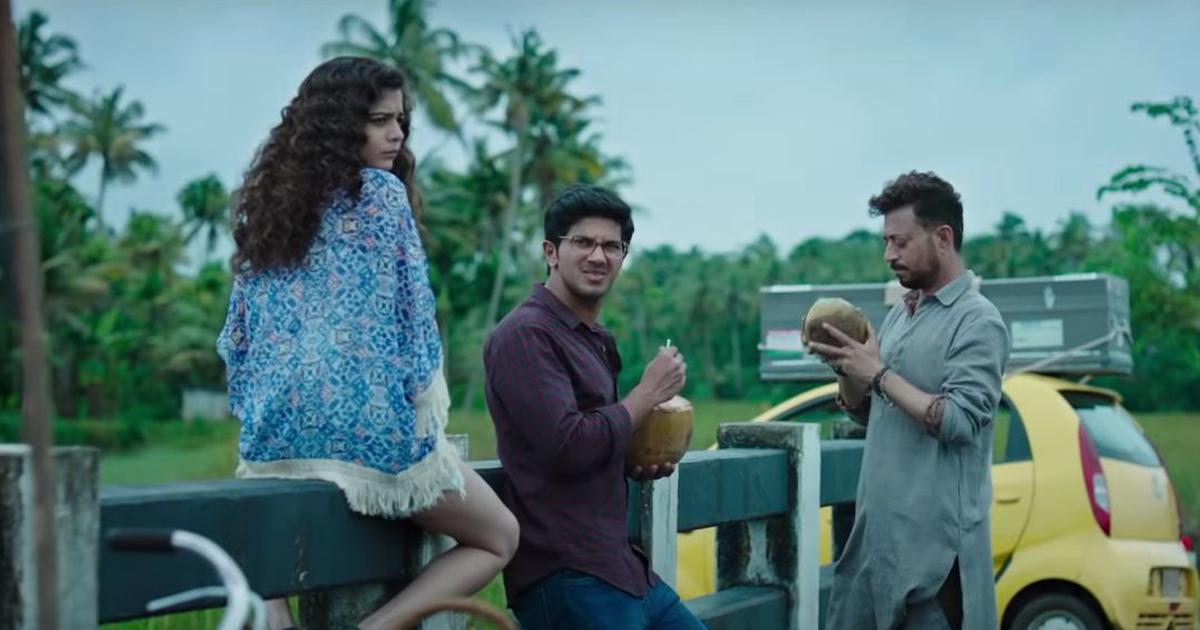Of all the things Twitter has thrown at me, the expression “Delhi Liberal” has stuck with me the hardest. Possibly because, as a south Indian living in Delhi, the phrase has personal resonance for me.
Who is a Delhi Liberal? What defines him? The definition varies, but there are some common traits:
-
- His/her unit of political, cultural, economic discourse is India.
- Governments for him/her end in Delhi; India is ruled from Delhi.
- Every narrative in Delhi applies to the whole of India.
- He/she is an avowed liberal but will baulk at movements advocating rights of States.
- Rains in New Delhi are headline topics but floods in distant states are non-issues.
- Implicit recognition of Hindi as the “national language,” and other languages as “regional languages.”
I watched Karwaan over the weekend and if ever there was a movie that’s done justice to the Delhi Liberal, this has to be it. The movie is based in south India and involves Bengaluru-based IT professional and aspiring photographer Avinash Rajpurohit (played by Malayalam superstar Dulquer Salman) going on a road trip to Kerala to get possession of his father’s dead body which was accidentally exchanged with an old lady’s.
Avinash is joined by Shaukat (Irrfan Khan) and Tanya (Mithila Palkar). While Shaukat is the owner of the van the trio are traveling in, Tanya is the granddaughter of the elderly lady whose body is in Avinash’s possession. Avinash and Shaukat pick up Tanya from her residential college in Ooty en route to Kerala.
Now, you’d imagine that after choosing a script set in south India and casting two south Indian superstars (Amala Akkineni in the movie too), the director would use this opportunity to take his Hindi-speaking audience on an exciting cross-cultural road trip through the south. Instead what follows is a bundle of cliches that only reinforce the Delhi Liberal’s misconceptions of the south.
The director starts hinting at his characters’ limitations from the very beginning. While the surname of Rajpurohit gives it away in Avinash’s case, there is a point in the movie when Tanya proudly declares “we originally do not belong here” when asked why she cannot speak in Malayalam despite being from Kerala.
This characterisation of Avinash becomes more problematic when you consider that he’s an aspiring photographer, yet seems clueless about the world around him. You’re left questioning Avinash’s liberal arts credentials when he expects coherent answers to his shuddh Hindi questions in the middle of Kerala. To add insult, the guy Avinash is talking to is a woefully stereotyped, vermillion-loaded character named Nambiar, who is so dumb that he answers his own name for multiple questions. It, perhaps, is no surprise then that Avinash ends up with the wrong body after such miscommunication.
Shaukat’s Muslim-ness overrides everything else about him. In an odd nod to his social conservatism, this Bengaluru-residing van owner is shocked at the sight of Tanya’s bare legs almost as if Shaukat was airdropped into Bengaluru from the Uttar Pradesh of Majrooh Sultanpuri’s time, whose Urdu quote proudly runs across Shaukat’s van. And true to Delhi Liberal sensibilities, the quote is in Devanagari, not the feather-ruffling Nastaliq.
Expectedly, Shaukat can fall in love only with a burqa-clad woman and flirts by rattling off a few lines of Urdu poetry. To make things even better, out of nowhere, the woman he wants to marry ends up being the third wife of an elderly Muslim man. And like any other true Delhi Liberal, the director had to sneak in that most pressing, urgently needed Indian social reform – triple talaq.
In an act meant to signify a stunning social revolution, the woman actually utters “talaq” three times to get rid of her husband so that she can be with Shaukat. Of course, all this doesn’t even take into account the unique customs and culture of the Muslims of Kerala and we have to assume that this Kerala lady understands Urdu well enough to be impressed by Shaukat’s shairi.
Of course, Karwaan is a Hindi movie, so its characters are going to talk in Hindi. The problem occurs when a popular medium perpetuates troubling stereotypes. It’s problematic when a script selectively picks on the locals to elicit some silly laughter but the main protagonists refuse to budge from their previously held beliefs. Or when the movie’s lead characters mirror those real people who move to the south but think of the “local language” as something to use with maids or “lower people.” The director had the setting and the cast to go beyond stereotypes, and yet Karwaan left me thinking that if our art cannot go transcend stereotypes, what hope do we have in real life.

